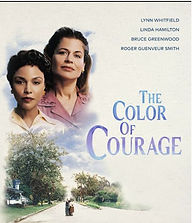Willis M. Graves: The Color of Courage Biography-2
Willis Graves: Pioneering Civil Rights Champion
Willis "Bill" Graves Jr. was born to formerly enslaved Willis and Eleanor Graves in the newly founded freedman's village of Oberlin in Raleigh, NC. Bill attended Shaw University in Raleigh, and went on to law school at Howard University in Washington D.C. After receiving his law degree in 1919, Bill moved to Detroit for the opportunities of a growing Black population, but he quickly discovered the city's racial inequalities in housing.
Graves and his law partner, Francis Dent, became the point men in the fight against racially restrictive covenants (prohibiting the sale of property to non-Caucasian people). As counsel for the Detroit NAACP, Graves worked with some of the nation's most renowned civil rights attorneys --including Thurgood Marshall -- to develop a national strategy for civil rights litigation.


Perhaps the pinnacle case in Graves' professional career was Sipes vs. McGhee (1947)....From trial court to the Michigan Supreme Court, Graves and Dent defended an African American couple, Orsel and Minnie McGhee, who had been sued by a white neighbor for buying a home that was subject to racially restrictive covenants. Despite Graves and Dent's argument that the "self-proclaimed beacon of liberty" that America established after World War II went against the racially restrictive covenants, the Michigan court upheld the covenant.
On appeal with Shelley vs. Kraemer (with lead attorney Thurgood Marshall), the Supreme Court of the United States ruled unanimously in May 1948 that racially restrictive covenants were unenforceable...This ruling enabled people of color to be able to legally "live anywhere." Shelley vs. Kraemer has since been used as a precedent in many landmark civil rights cases, including Brown v. Board of Education.
Writer / Producer Kathleen McGhee-Anderson premiered her movie 'The Color of Courage' in 1999. It was the story of her grandparents Orsel and Minnie McGhee, who purchased a home in 1944 in an all-white Detroit neighborhood.
Threatened with eviction because the neigborhood had a restrictive covenant forbidding "Negroes", the McGhees' case was championed all the way to the Supreme Court by Willis Graves and Thurgood Marshall.

Jeffrey Gonda's book "Unjust Deeds” chronicles the roots of Willis Graves’s “outrage and resolve” against residential segregation practices - and his successful legal battles to end it.